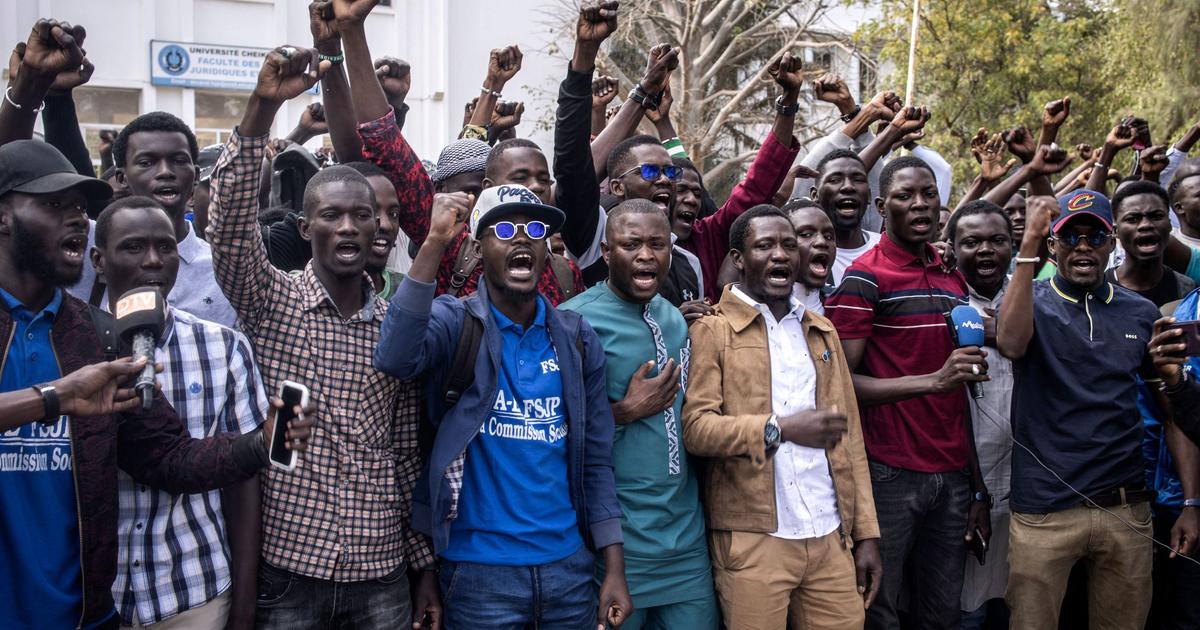Exterior of the Madrid VII Penitentiary Center, in the town of Estremera, where the alleged ill-treatment denounced by the prisoner took place.
Insults, threats, attacks on other prisoners, resistance to the orders of officials, destruction of furniture, possession of prohibited material, self-harm, hunger strikes... The prison file of Gustavo CN, 36, includes dozens of sanctions from who was imprisoned at the end of 2014 after being convicted of a robbery with violence.
A regular in the harshest modules of the prisons through which he has passed, on several occasions Penitentiary Institutions have applied article 92.2 of the Penitentiary Regulations to isolate him due to his “manifest maladjustment” to prison life.
A conflictive history that, however, accompanies a recent judicial triumph: on February 7, the Constitutional Court issued a sentence in which it was protected and ordered the justice to reopen the investigation of a complaint that it presented, in 2018, against three officials whom he accused of alleged mistreatment for having stapled their mouths in protest.
The case had been filed by a judge.
The high court considered that the magistrate had not thoroughly investigated that event, something that the Constitutional Court considers even more necessary when, as was the case, "the citizen is provisionally under the physical custody of the State."
The final release of the inmate is scheduled for June 22.
Then he will have extinguished, without having enjoyed any leave,
the 7 years and eight months in prison that two courts imposed on him for two crimes.
Of Uruguayan nationality, he has an expulsion file open.
Gustavo CN's prison history dates back to November 4, 2014, when he entered the Picassent prison (Valencia) to serve the seven-year sentence imposed for a robbery with violence.
A year later he would receive a second sentence, this one of eight months, for attacking the authority.
According to court documents, only 19 days after his admission, he went on a hunger strike.
Since then, he has accumulated a long history of incidents in the prisons he has passed through: in addition to Picassent, Castellón I, Villena (Alicante), Topas (Salamanca), Estremera (Madrid), Puerto I (Cádiz) and Córdoba, where it is currently located.
So far in May, he accumulates five incidents, three of them on the same day.
"He is a very conflictive prisoner, who causes problems for all officials,"
Andalusian prison sources point out.
Two of his latest sanctions are for “insults, threats and coercion” of prison workers.
A confrontation with officials is precisely the origin of the incident that caused the complaint that has ended up in the Constitutional Court.
On June 18, 2018, when he was in the Estremera prison, Gustavo reported having suffered ill-treatment two days earlier.
When he finally testified before a magistrate six months later, the inmate accused three officials of beating him after protesting that he was not allowed out in the courtyard after going on a hunger strike the day before.
Always according to his testimony, one of the workers slapped him and threw him to the ground, to later immobilize him by putting his knees on his neck and lower back, and handcuffing him.
After that, the inmate was subjected to mechanical restraint with straps for 19 hours due to the aggressiveness and nervousness that he showed.
The testimony of the two accused officials was very different.
Both denied having attacked the prisoner and stated that with his actions they intended to prevent him from continuing to harm himself, since when they arrived at the cell he had blood on his nose and a staple on his lips.
In his statement, the workers assured that his behavior was "aggressive" and described Gustavo as "a problematic inmate."
The same day they gave a statement, on April 11, 2019, the judge closed the case, considering that there was no evidence of a crime.
The Provincial Court of Madrid ratified this decision months later.
After this judicial setback, the inmate presented in December 2019, through his court-appointed attorney, Antonio Enrique Serrano, an amparo appeal before the Constitutional Court, considering that his right to effective judicial protection had been violated by the decision of the magistrate for rejecting various proceedings that the prisoner had requested.
Two years and two months later, the high court agreed with him and ordered the case reopened.
When this sentence was issued last February, Gustavo had gone four months without causing incidents.
However, at the end of April he was again adding new ones to his history.
Within a few days, he seized prohibited material, showed "active resistance" to orders, and threatened officials.
The dangerous intern who repealed a norm
Gustavo CN is not the first conflictive prisoner to obtain the backing of justice for his complaints.
In May 2020, the Ministry of the Interior was forced to repeal a prison protocol put in place in 2016 by the Government of Mariano Rajoy that, among other measures, forced all inmates classified as very dangerous to be handcuffed from behind every time. who left their cell, even if it was to go to another unit of the same prison.
The decision is made after a Penitentiary Surveillance judge issued an order in which she accepted the complaint filed by Fernando Vázquez Ayude, a troubled prisoner, who complained about the treatment he received in prison.
In her brief, the magistrate concluded that that protocol, dictated in the stage of Jorge Fernández Díaz at the head of the Interior,
Exclusive content for subscribers
read without limits
subscribe
I'm already a subscriber

/cloudfront-eu-central-1.images.arcpublishing.com/prisa/2BBCMZQC6JGFDJ3KSGIU5YMAOU.jpg)













